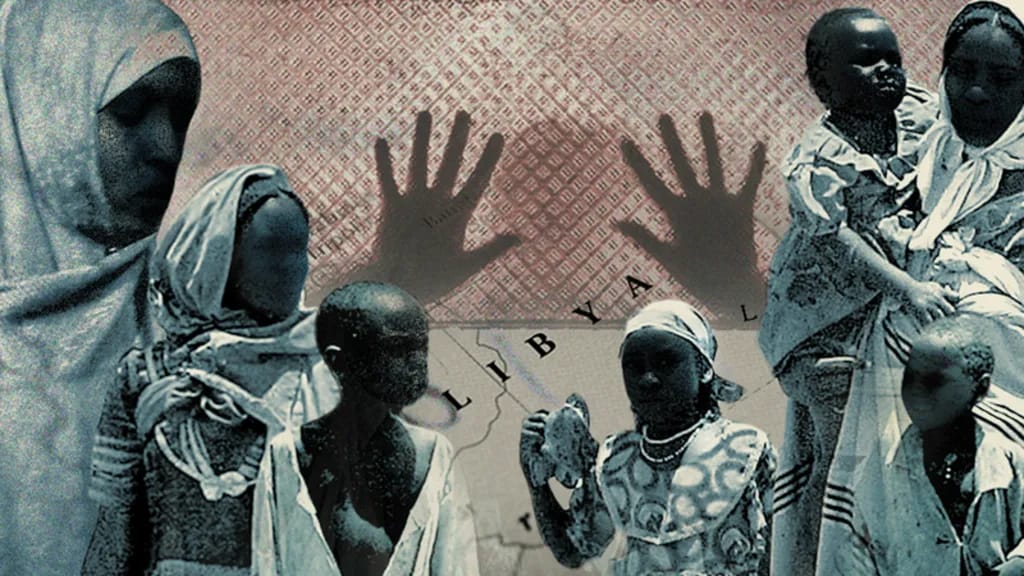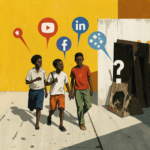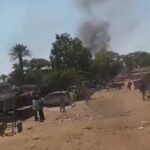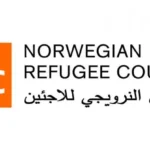Darfur followups: Enaam Alnour
In the desert between Sudan and Libya, the wind carried screams that reached no one.
There, in the middle of nothingness between burning sands and days without shade dozens of Sudanese women left their bodies on the dunes in exchange for a chance to cross toward “salvation.” The sky was a witness, and silence guarded a crime that would never make it into reports.
Some collapsed unconscious from fear; others carried their shame with them across the border, entering Libya not as refugees, but as survivors wounded, yet still breathing.
Amina Idris, a 30-year-old woman from El Fasher, says she still hears the screams of her companions to this day.
“They stopped us in the middle of the road and said they were guards. They took the girls while we just stood there watching, unable to move. Seven days in the desert felt like seven years of hell. By the time we reached Libya, we were ghosts not human anymore.”
Before their feet ever touched Libyan soil, the desert had already taken its share of them.
Seven days of wandering in unbearable heat between sands that swallowed their steps and a merciless sky left the caravan of Sudanese women stripped of their last threads of hope.
On the third day, a small car appeared, swaying over the dunes. Five armed men stepped out, their faces covered. They said they were “road guards.” But the road needed no guards only mercy.
Amina adds:
“They told us to wait a little, then ordered the men to move ahead and the women to stay behind. They divided us into two groups I was in the second. We resisted, but no one heard us. One of them hit me on the back with a stick. They raped us right there, under the blazing sun. When they were done, they left us lying like corpses. The men in the convoy couldn’t come back they were afraid they’d be killed.”
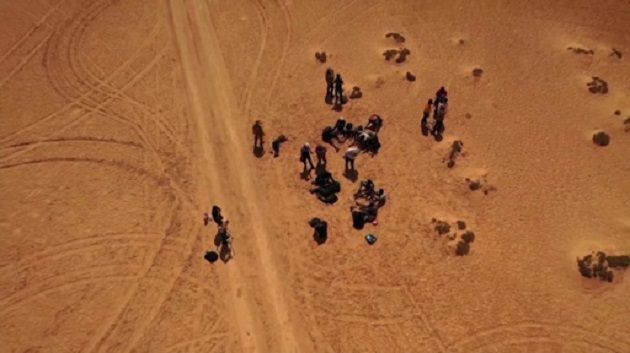
The story begins not in war-torn Khartoum, but in the desert — a place that reshapes women’s destinies and tests the limits of their endurance.
In Libya, a country that has turned from a passageway into a trap, thousands of Sudanese women found themselves caught in a new vortex between refugee brokers, officials who exploit their bodies in the name of “help,” and international institutions that have lost their human conscience.
There, war doesn’t need guns; it’s enough to be a woman and Sudanese.
Imtinan Omar fled from Omdurman, carrying her sick daughter and a small bag holding what was left of her life. She didn’t know that the road to salvation would lead her into a harsher battlefield where the body becomes the price, and survival a deal made in the dark.
Imtinan’s story is no exception; it’s a mirror reflecting what silently happens behind the walls of international institutions and aid offices — where trust is violated long before the body is.
The Dream of Asylum Turns into a Nightmare
When war broke out in Sudan in April 2023, Imtinan had no time to say goodbye to her home in Omdurman. She took her child, her memories, and headed north with the waves of the displaced. Along the desert route, she heard that Libya was “the safe passage,” but the road turned out to be another pit of hell.
In Tripoli, after three months of waiting, she finally got an appointment with the UNHCR. She looked forward to that moment as her last window of hope.
But that interview marked the beginning of another collapse. After leaving the building, three men intercepted her on the main road. They stole her bag, her phone, and all her documents and left her there.
In that moment, she realized that war never leaves a refugee’s body — even when they leave their homeland.
Imtinan says: “I was left without papers, without protection. I went to the police, but they wouldn’t listen they said I was an illegal migrant. Then the anonymous calls began. Voices telling me they knew where I was, that they could ‘help’ me… for something small in return. That’s when I realized they were the ones who had stolen my documents. What they really wanted was my body.”
A Libyan activist working in the field of women’s protection who preferred to remain anonymous confirms that such cases have become a daily routine.
“There are networks that monitor women leaving the UNHCR offices. They know the times of their interviews, steal their documents, and later blackmail them. Some of these gangs have ties with people inside official institutions even within humanitarian organizations.”
Thus, the place that was meant to offer safety has turned into an open gate to danger, surrounded by wolves in different uniforms all hiding behind false humanitarian slogans.
Extortion in the Name of Aid
Inside Tripoli, the sound of generators mingles with the cries of women behind closed doors. They tell stories that never make it into any official report because speaking out here can cost a life.
Sudanese journalist Fatima a pseudonym who once worked as a correspondent before fleeing El Fasher, says:
“In Libya, you don’t have to be beautiful to be exploited you just have to be desperate. The offers come wrapped in the language of help. A director of an organization might say: We can provide you with safe housing as long as you stay close to me. Another promises a field job as a translator, then asks for a private meeting. Those who refuse are immediately excluded.”
Fatima adds that these practices have become part of a hidden culture one everyone whispers about but no one dares to confront.
“Some of my colleagues stayed silent, afraid of being expelled or deported. Others had to submit because they had nowhere else to go. What hurts most is that the blackmail sometimes comes from people wearing United Nations badges.”
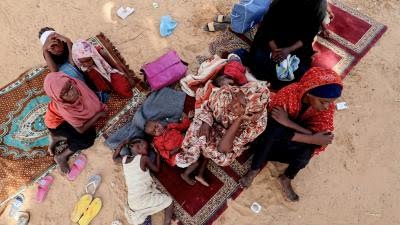
As for Hanadi Hassan, a dark-skinned Sudanese activist who arrived in Libya in 2024, she says:
“I applied for a job as a translator with an international organization. A Libyan official told me, ‘We can make things easier if you’re a little flexible.’ I refused and my application disappeared completely. I never even got a reply. When you refuse, the door slams in your face. When you stay silent, the door opens on your body.”
These stories are not anomalies; they form a recurring pattern quietly and angrily documented by local activists. Behind the banners of “human rights” and “women’s empowerment,” small deals are made that strip women of what remains of their dignity.
Color and the Curse: Racism as a Tool of Humiliation
In a country torn apart by militias and ruled by armed hierarchies, skin color becomes a crime.
Imtinan adds: “Every time I speak in my Sudanese dialect, I feel the contempt the looks, the words, even children in the streets shouting: ‘Slaves!’”
This racism is not just social behavior it is fuel for sexual exploitation. Criminal networks and power brokers know that society places no value on African women, and that their complaints will echo into silence.
Libyan activist Sara Al-Khidr explains:
“Society treats refugee women as if they’re available. Police officers don’t take their reports seriously, and the criminals know the law won’t move to protect a dark-skinned, poor woman with no papers.”
This racism silences victims before they can even speak because here, a voice is only heard if it is white, wealthy, or protected.
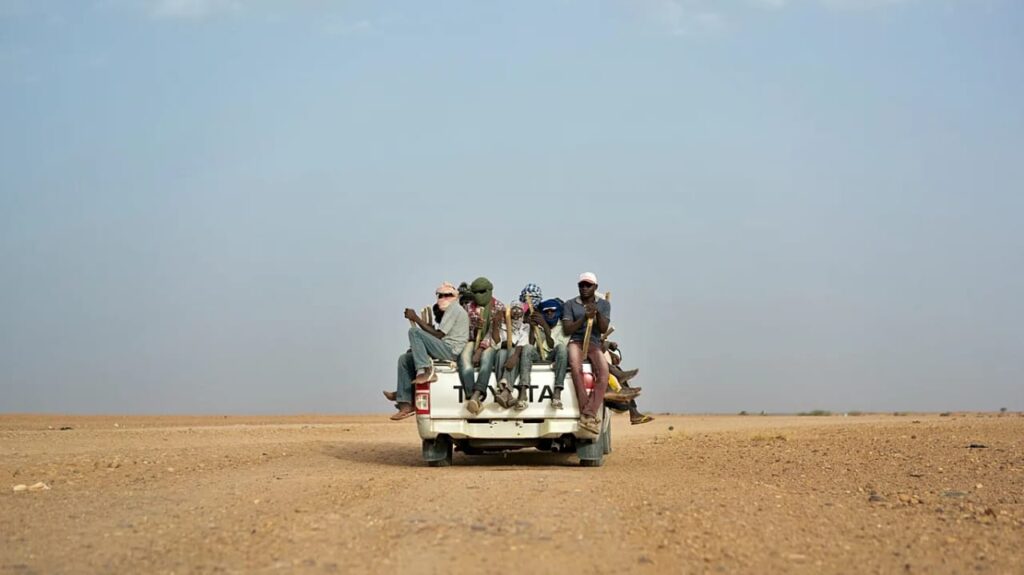
Hell Documented in Numbers
In successive reports by the United Nations and international organizations, the numbers hit like a slap to the face of the world.
The UN Refugee Agency (UNHCR) estimates that nine out of ten women crossing Libya toward the Mediterranean are subjected to some form of sexual violence or exploitation.
A UN mission report in Libya documented 27 confirmed cases of rape within a single year, most of them in detention centers run by armed groups.
Amnesty International noted that women are forced into sex in exchange for food or release, while reports by the International Rescue Committee (IRC) indicate that “sexual violence has become the most widespread form of violence against newly arrived Sudanese refugee women.”
According to the IRC, most cases are never reported. Fear of deportation, shame, and lack of trust force victims into silence. They die slowly, in a quiet that resembles a second death.
The 2025 report by the International Committee of Jurists described the Libyan judicial system as “blind to sexual exploitation crimes.” Laws do not even explicitly mention “sexual exploitation,” using vague terms instead, such as “indecent acts” or “assault on honor.” Penalties are light, investigations are rare, and accountability is almost non-existent.
Libya itself is not a signatory to the 1951 Refugee Convention, meaning that refugees have no international legal protection within its borders.
In this legal vacuum, the catastrophe multiplies: organizations disclaim responsibility, authorities collude, and the world remains silent.
Human Trafficking Networks: Militias Run the Market
Behind the scenes, a massive machine fuels this hell. Libya today is not just a transit route for migrants; it is a hub of a hidden trade generating millions.
Human smuggling networks stretch from Sabha to Tripoli, passing through Gharyan and Misrata, involving armed militias, brokers, and sometimes even state officials.
According to Chatham House’s 2025 report, the Libyan conflict has become a perfect cover for the expansion of human trafficking networks. Militias control roads and border crossings, imposing fees on every human convoy that passes. Women are the most valuable prize, as their bodies are sold, exploited, and used to threaten families.
A Libyan activist explains: “Women are moved from detention center to detention center, and sometimes to private houses where they are sexually exploited. There is an entire trade operating behind the scenes.”
Another activist, secretly documenting these crimes, says:
“Everything here is connected: the militias with weapons, the brokers controlling the routes, and the organizations whose data cover up the failure and shame. In between these networks, Sudanese women fall into a pit with no escape.”
The World Organization Against Torture (OMCT) reports that Libya, suffering from conflicts and instability, is one of the most dangerous transit points for migrants.
The absence of a strong central government and the proliferation of armed groups have created a chaotic environment marked by severe human rights violations.
The OMCT report highlighted several Libyan laws contributing to the crisis , Law No. 19 of 2010, criminalizing illegal migration and granting authorities broad detention and deportation powers , and Law No. 24 of 2023, prohibiting the settlement of foreigners , and Law No. 19 of 2001, restricting the capacity of NGOs to provide assistance.
Sudanese refugees in Libya live in a repressive environment, targeted by harsh legislation, inhumane detention conditions, and limitations on humanitarian organizations.
The organization added that improving refugees’ conditions requires coordinated local and international efforts to address the root causes of the crisis and promote voluntary return.

